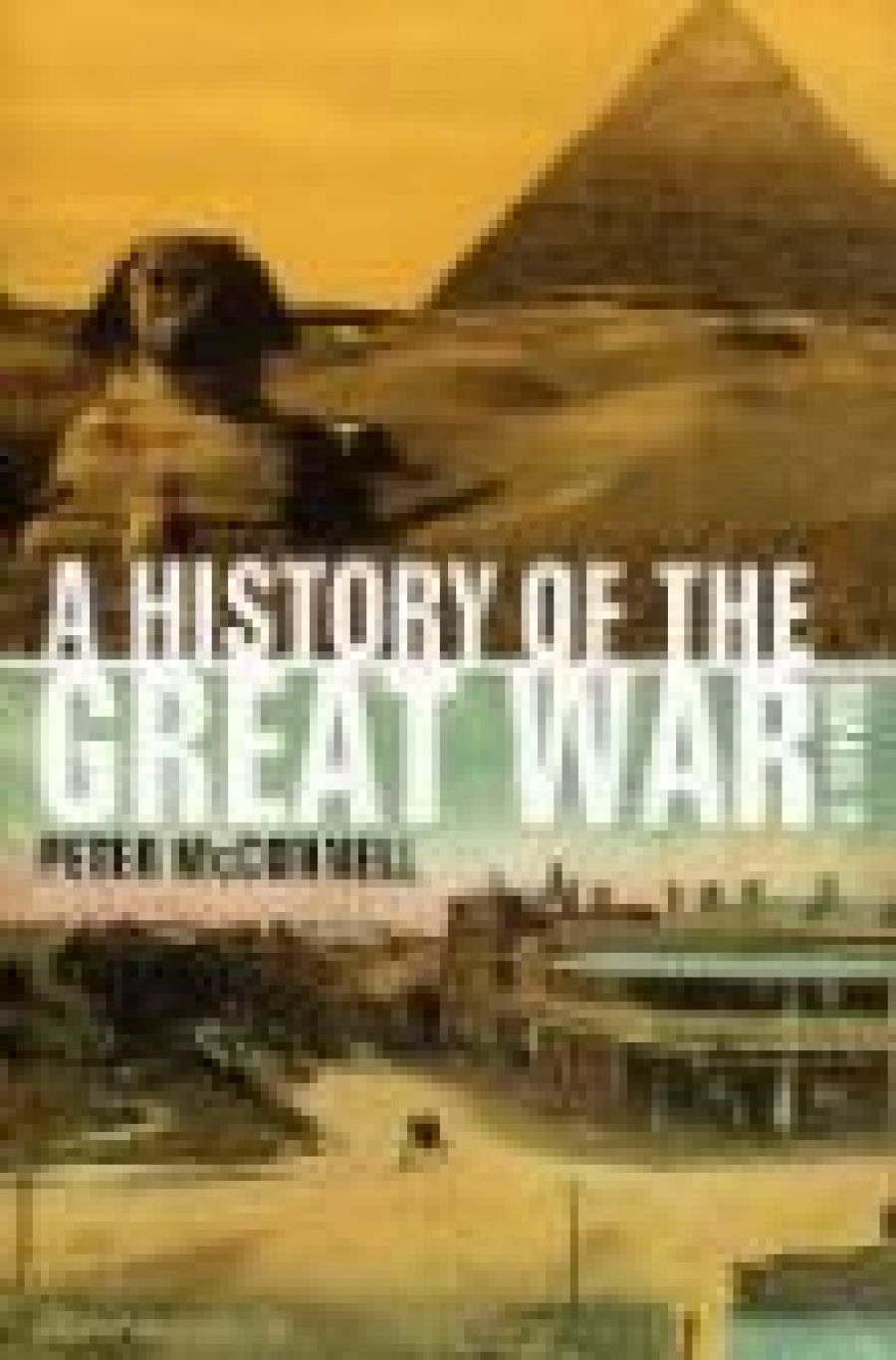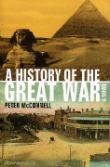
- Free Article: No
- Custom Article Title: IN BRIEF
- Review Article: Yes
- Article Title: IN BRIEF
- Article Subtitle: Steve Gome reviews 'A History of The Great War' by Peter McConnell
- Online Only: No
- Custom Highlight Text:
A History of The Great War alludes to an encyclopedic work that appeared in the wake of World War I. Bound in red leather and embossed with gold, it exemplified officially sanctioned history. Peter McConnell’s recommissioning of the title is more than mere irony: it throws down a challenge to our acceptance of conventional history. His central character is a latter-day Penelope, a decent, ordinary woman who nonetheless possesses many of the noble attributes often evinced by the Anzacs: endurance, resourcefulness, patriotism and courage.
- Book 1 Title: A History of The Great War
- Book 1 Biblio: Transit Lounge Publishing $29.95 hb, 239 pp
- Book 1 Cover Small (400 x 600):

- Book 1 Cover (800 x 1200):

McConnell introduces us to Ida Hallam, born in Bairnsdale in the late nineteenth century. The people of the town are for the most part, like Ida, sustained by quiet faith and a sense of kinship with Britain. Life in the township follows steady, seasonal rhythms. McConnell’s evocation of the era is detailed and empathetic, never lapsing into sentimentality. We are always aware of the passage of time and the changes that it wreaks.
When her fiancé departs for the Dardanelles, Ida starts to embroider a grand tablecloth. The tablecloth features the hollyhocks and jonquils of her garden alongside the emblems of units raised in the district. When her son is captured at the fall of Singapore, Ida embroiders the face of a POW to represent him and his mates. Every year she adds a poppy for Armistice Day. As a grandmother at the time of the Vietnam War, Ida notices that her flowers and birds have supplanted the crossed swords and rifles of earlier days.
Ida never experiences a climactic triumph, nor an epiphany. Yet her abiding strength and gentle courage see her find wisdom. By incorporating world events into her life’s tablecloth, she domesticates them, revealing ordinary people to be participants and creators of history, not only recipients of it. Perhaps this a radical and democratic thought, or else proof that the meek and seekers of peace are blessed.


Comments powered by CComment